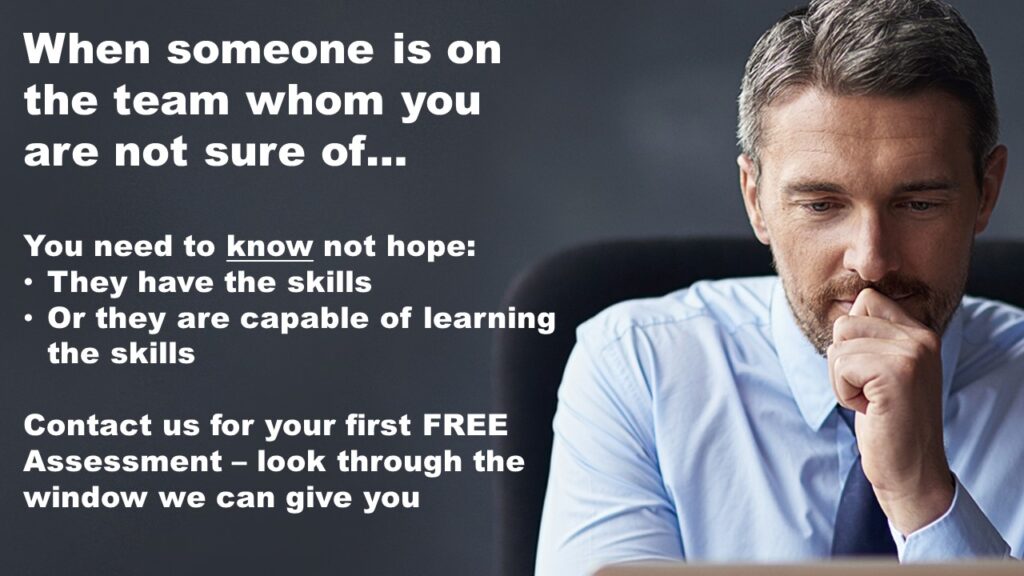Hiring the wrong person is a $100K mistake. But it quickly turns into a much more expensive mistake when your organization struggles to make the hard decision to let them go. Whether CEOs witness the execution weakness or hear about it from managers reporting in on issues or team members they are struggling to make productive, there is no company situation in the world that does not have underperforming folks in the team. When it comes to roles which engage with prospects (sales) or customers (installation/support), it’s hard to establish and hold folks accountable for benchmarks – they are often subjective and there are so many factors which can influence someone’s ability to hit them. Add to that a learning curve or results window which has to be applied to folks new to a role and you end up with way too many folks in the team with question marks over their head.

Are they going to make it? Are they going to turn into a contributor or someone we have to let go? How long should I give them? Have we given them a fair shot at proving themselves and if not how can we help them so we know we are not saying goodbye to someone who may be a superstar. Those are difficult questions to begin with, but when you add the natural human tendency to want to avoid a termination conversation, you have a recipe for underperformers staying in an organization way too long. And this costs you revenues, profits and customer satisfaction.
We know that 62% of all sales and customer engagement hires turn out to be the wrong person. How many of those 62% are still working for your company today? And what can you do to either rescue or weed those questionable performers. The answer – Assessments.
There is a way to have someone prove they have the skills, or the opposite, that they don’t have the skills. And if they don’t have the skills, there is a way for them to prove they can get better and actually get better. If you want someone to prove to you they can play chess, then ask them to play chess. If they aren’t very good at chess, show them where they are making wrong moves and what the right moves are. Then ask them to play another game of chess. If you want someone to prove to you they can sell or handle difficult customer moments, then drop them in a role play and have them show you the skills. If they struggle in the situation, give them feedback on how they can approach the situation differently. Then have them take another shot at it and show you they have improved.

Next time you have someone in the sales or customer engagement team who has a question mark over their head, don’t put them on probation, put them through an Assessment. You need to get an instant answer to whether they have the necessary skills, and if not start the process of developing those skills or decide they won’t make it. Finding Winners runs a $500 Assessment program which will accomplish this for you – a recorded session you can watch after the fact along with the manager in question and coach them on what they need to do. The question mark person can also watch the recorded session, which often leads to an even further skills improvement step for that person. But you can organize your own Assessments as well. Position these Assessments as skills development programs. To the employee and team you are investing to help them get better – something normally everyone notices is necessary for this person. Use a virtual Gotomeeting type tool for the role play so it can be recorded and the performance shared with other folks who can share their opinion. Should we cut our losses here or keep investing in having this person hold down a precious slot in our team?
